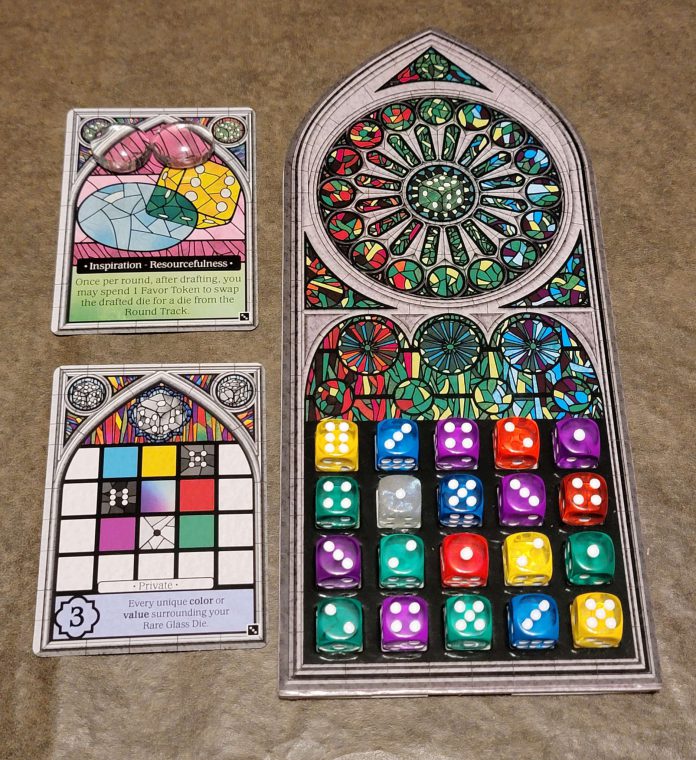I have a gaming family and I have gaming friends and even participate in a gaming group every now and again. But certain times of year I end up with a houseful of people who, while not game-haters, don’t have a lot of experience with games and when they see our wall-length collection, they are somewhere between awed and panicked. My town is a decent-sized tourist town, but we don’t always want to be out and about all day and night, so eventually, someone in my house will suggest a game. But what do you bring out for the easily intimidated friends and family members? Games with simple rules, relatively short time at the table, and often, something with a cooperative bent so they don’t feel trampled on every time they sit down with veteran gamers.
Between Two Cities: Stonemaier Games
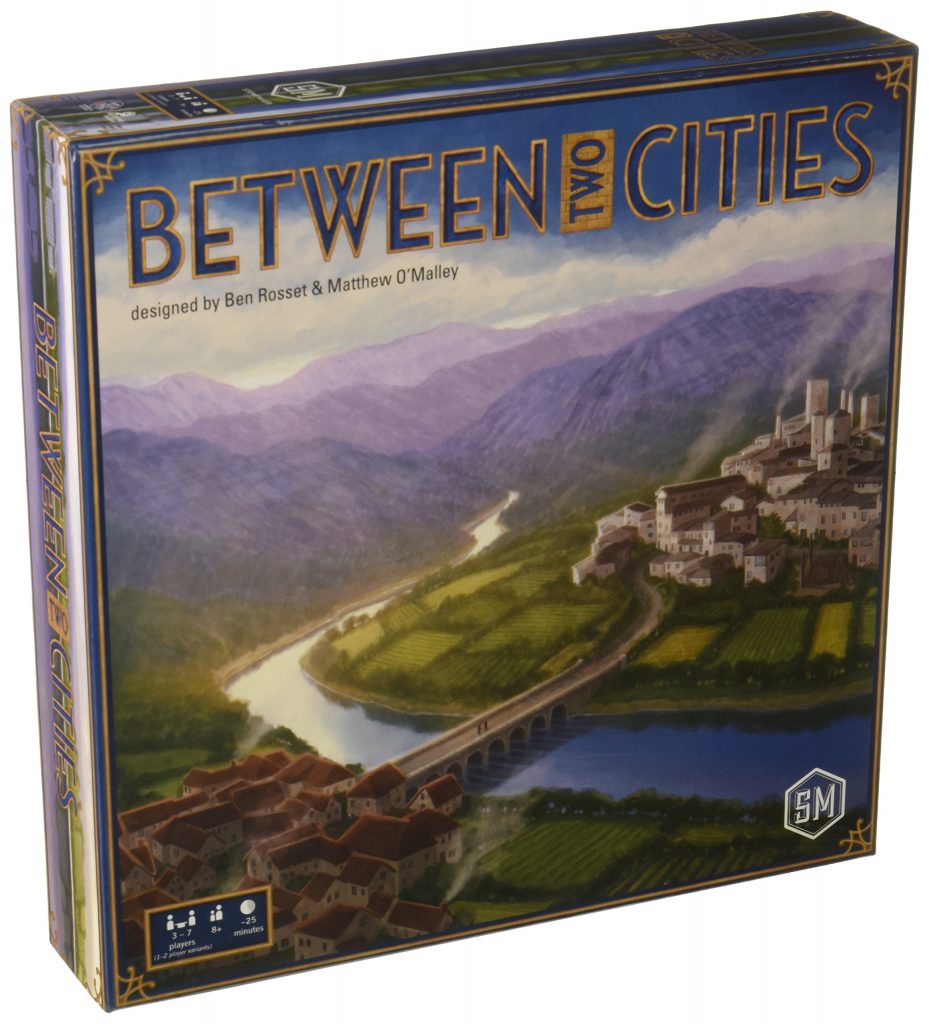
First up is Between Two Cities by Stonemaier Games. It plays up to 7 people in about half an hour. While not fully co-op, this tile drafting game is a lightly competitive game where you build a city with the player on each side of you, and you want each city you build to be as balanced and close in scoring as possible, because only the lowest scoring city you build gets scored. You will draw two tiles work with each of your partner to see which tiles will work in your city. The tiles consist of retail, office, hospitality, natural, industrial, and entertainment spaces to join residential neighborhoods. All types have bonuses in some configurations, but some have penalties in other configurations, so place carefully! This simultaneous building strategy helps novice gamers feel at more ease and it is a good ice breaker for folks you may not be super close with, so shuffle up your parents along with your in-laws and break up your veteran players to sprinkle between the newbies in order to level the playing field best. This is a lightheated and thoughtful strategy game that tends to play quietly, so when the babies are napping and the older kids are bored, this is a great choice. The scoring can be confusing for non-gamers and while there are explanations on the cards, they can be a bit of a head-scratcher. However most people I have played with have really enjoyed this one despite being confused, especially if a more knowledgeable player does the adding up until they get a handle on it themselves.
Apotheca: Renegade Game Studios
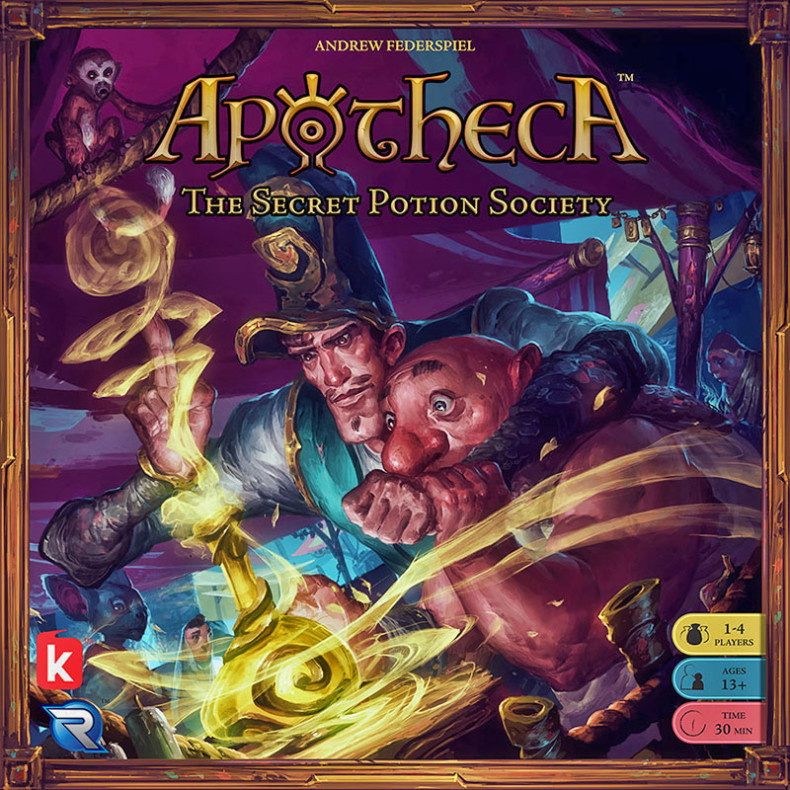
Another great pick is Apotheca, by Knapsack Games and Renegade Game Studios. A “deceptively simple” 30 minute strategy game plays up to 4 players and the rules are pretty straightforward. Flip tiles and match three potions in a row to collect gems and gain points. Move or mix them with apothecary powers on them to foil your fellow players or gain advantages. This one is good for guests because with 4 players you can play on teams, which can help new players find their footing. You can make bigger teams, but it will make it chaotic and maybe not the best gameplay you’ve ever had. But some folks really enjoy that, so go ahead and try it and see how it works for you. As easy as the rules are, managing to do this is harder than it sounds a lot of the time, particularly when teams are involved. Tiles get removed as matches are made and replenished as you go along, keeping things interesting. A little memory is needed for this game, but thankfully not a ton or I would not make it through, personally. The artwork is very nice and the apothecaries have a wide variety of abilities which helps you find what moves you like and pick up favorite cards as you go along. Scoring is simple and you can easily play more than one game in an evening. There is a solo element you can try on your own, too, that plays more like a puzzle. It can be good for a quiet little recharge when you need some downtime.
Telestrations: USAopoly
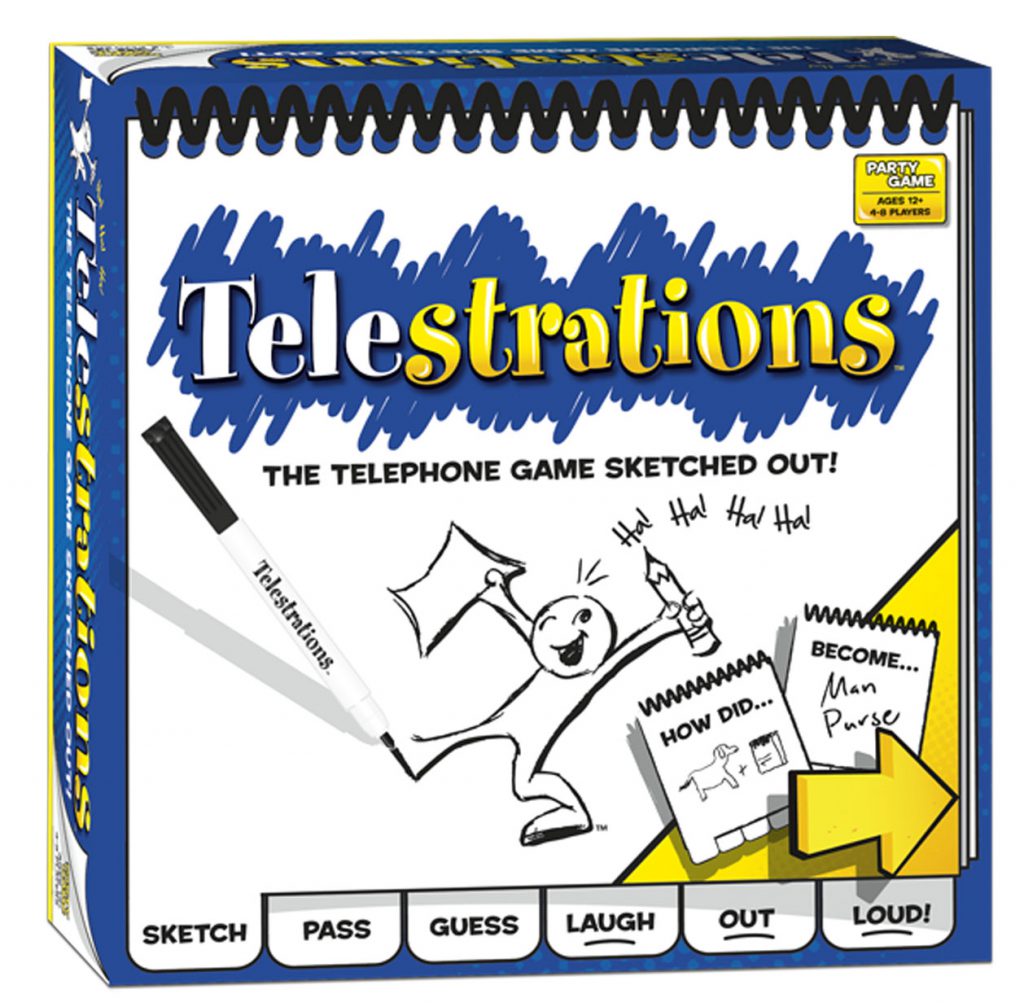
For bigger groups, I recommend Telestrations, published by USAopoly (and a host of others, depending on your location). The regular game goes up to 8 players but there’s also a party version that accommodates 12 players. The bigger the group, the weirder this game gets, particularly if drinking and/or children are involved. The worse your drawing skills are, the more hilarious the guessing becomes. Each player gets a little whiteboard book and pen. A word is selected by dice toll and players have until the 90 second timer runs out to sketch their word. After that, every player passes their book to the next person, who tries to guess what they are looking at. Once all guesses have been made, the next player must sketch their own version of what was guessed on the page before. Play continues in this manner until the book is full and returns to the original artist. At this point, the players take turns revealing what their original word was and flips through the book, showing the group what was guessed and sketched, which often goes wildly off the rails in a hysterical and sometimes terrible fashion. It is the most fun when things go absolutely silly.
Sagrada: Floodgate Games
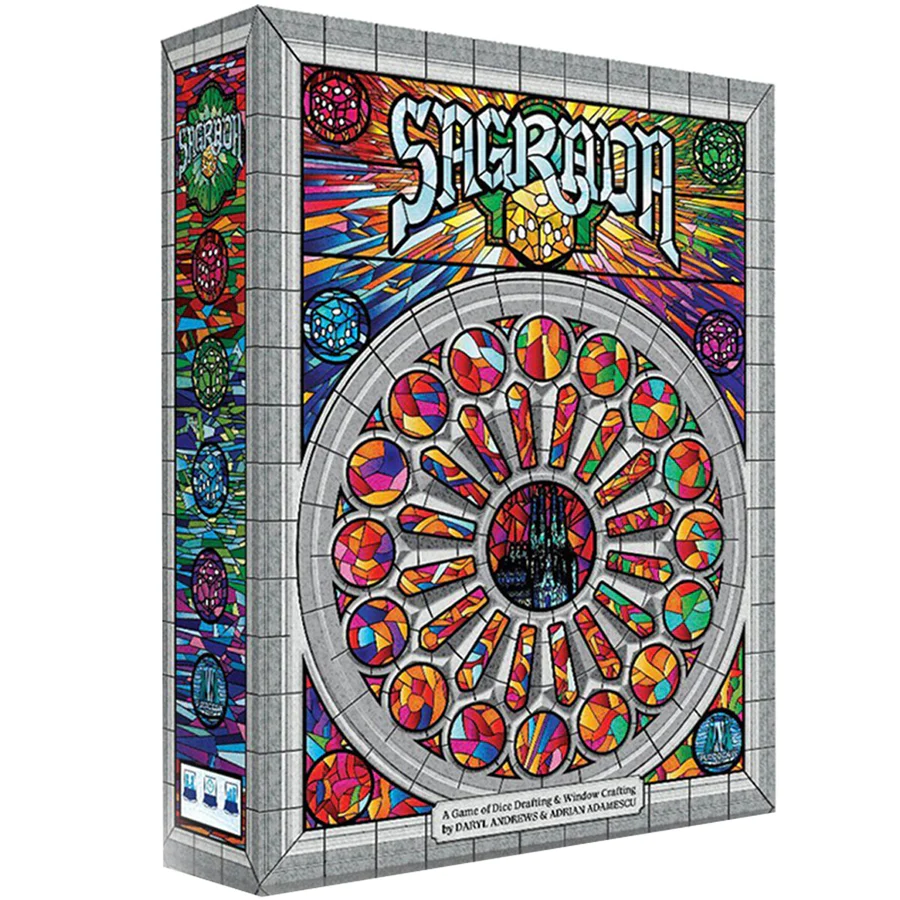
My final recommendation is a pretty little game called Sagrada, which is from Floodgate Games. Up to 4 players can complete this dice-draft game in less than an hour. Very little reading is needed during game play, but it is a very color-dependent game, so make sure none of your guests are color blind (or be prepared to alter your game and help that player keep track) before you pull this one from the shelf. In this game players are building gorgeous stained glass window designs by drafting many colored dice and placing them by the number and color requirements on their boards. Bonuses can be gathered by completing hidden goal cards or spending skill tokens to use Special Tools out on the table, which allow you to break or bend certain rules of the game. The window cards span a range of difficulties and while the drafting gets a little competitive, this colorful game is mostly peaceful, which is a good contrast for more introverted guests who avoid fast paced and loud games as a rule. There is also a solo play rule set which allows you to challenge yourself against dice you draft and don’t use and have to set aside. This game has strong visual appeal and while there is competitive scoring, for the most part players are worried about their own projects more than their opponents’ business. Sagrada has a 5-6 player expansion add-on you can buy in order to get more people to your table.
Finding a game that your guests are truly entertained by is always a great feeling. Sometimes I even give the game to my guest to take home and enjoy with their own friends and family, to spread goodwill and give them something to remember us by. Doesn’t hurt to free up some space for upcoming games to keep things fresh at home, either. Maybe you will start a family tradition of holiday game swapping, or maybe your guest will start hosting game nights of their own and be more open to your vast and adventurous game library in the future. There’s always hope!
Have any questions or feedback? Drop us a note in the comments below or email us at contact@goonhammer.com.
